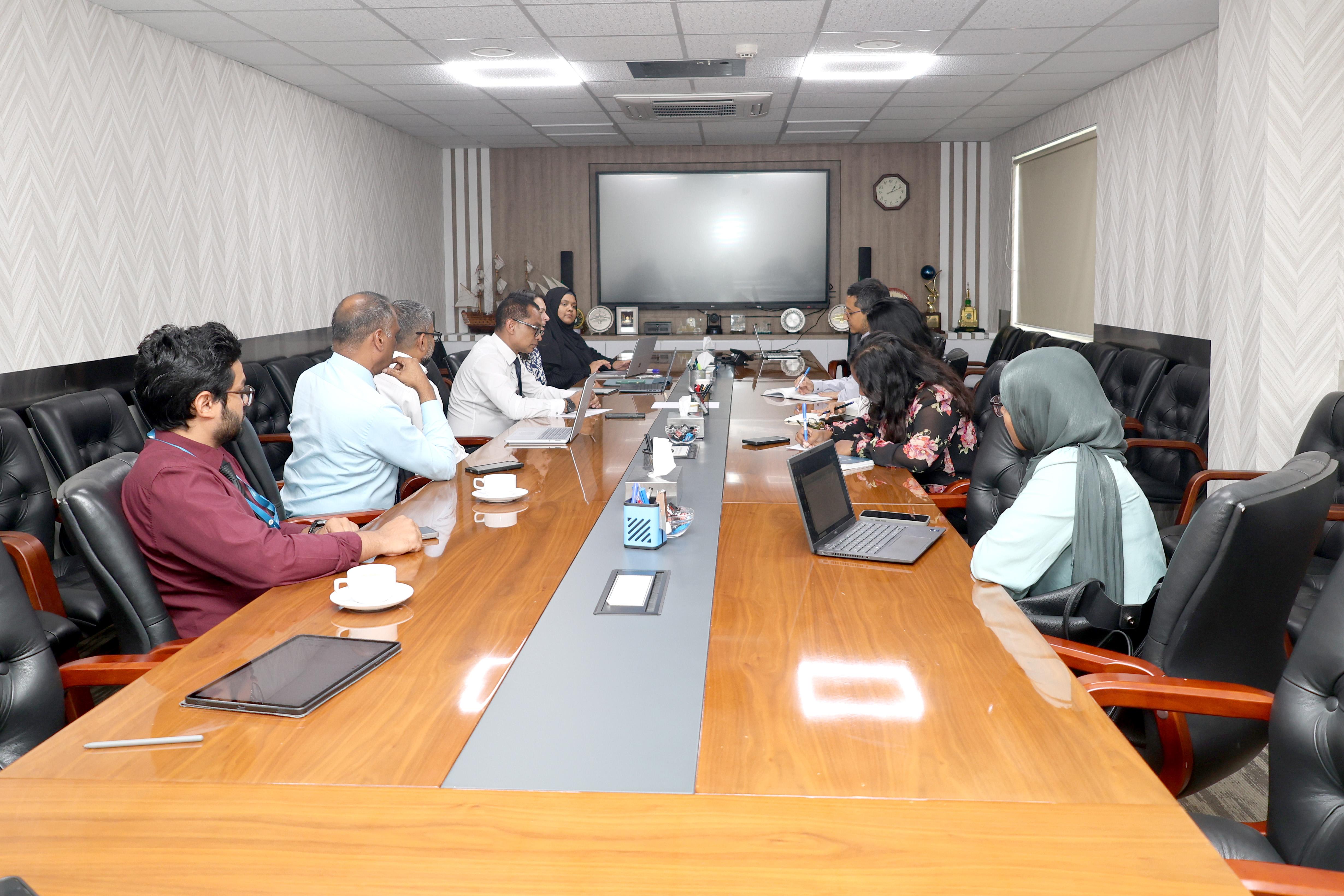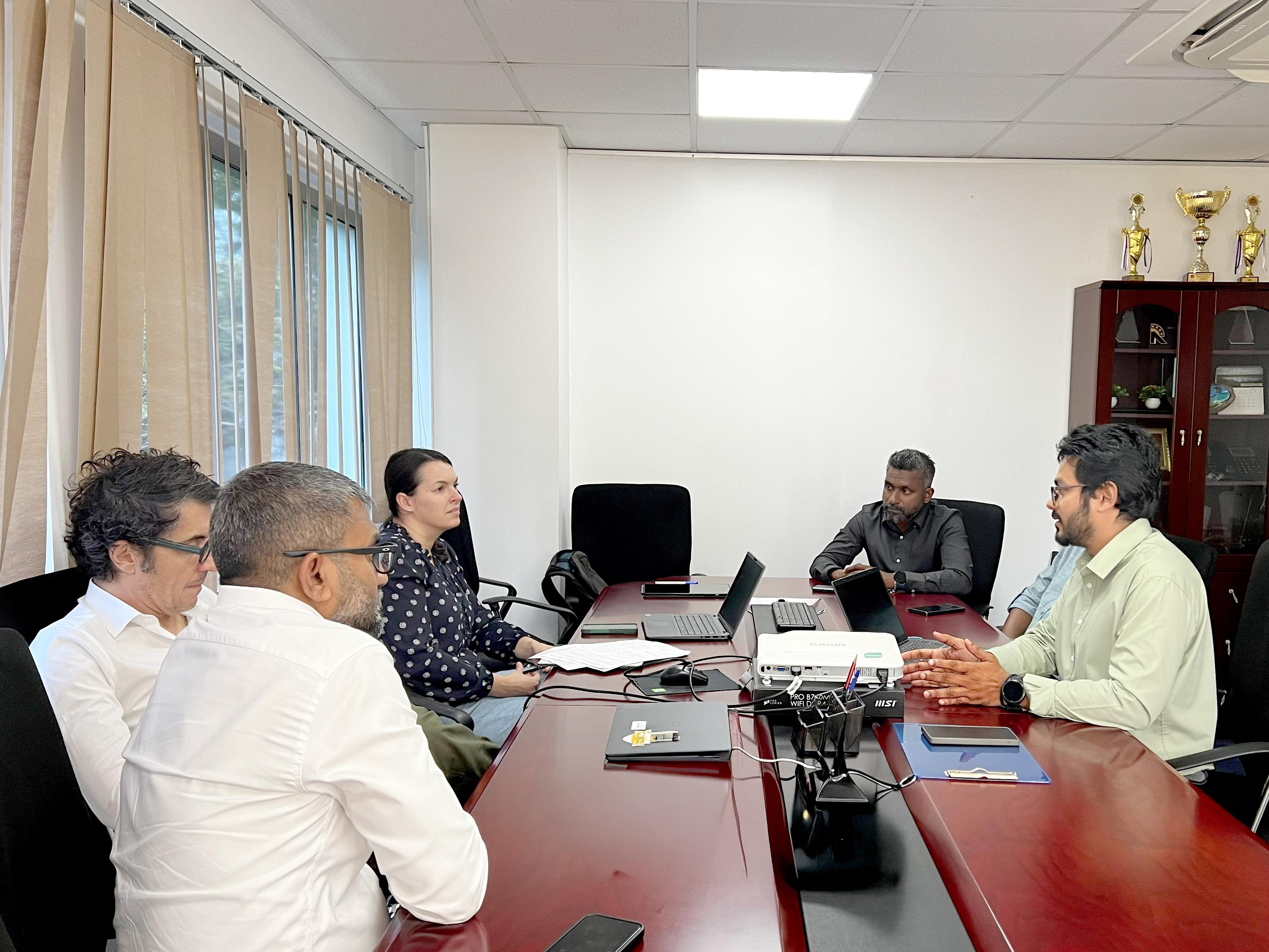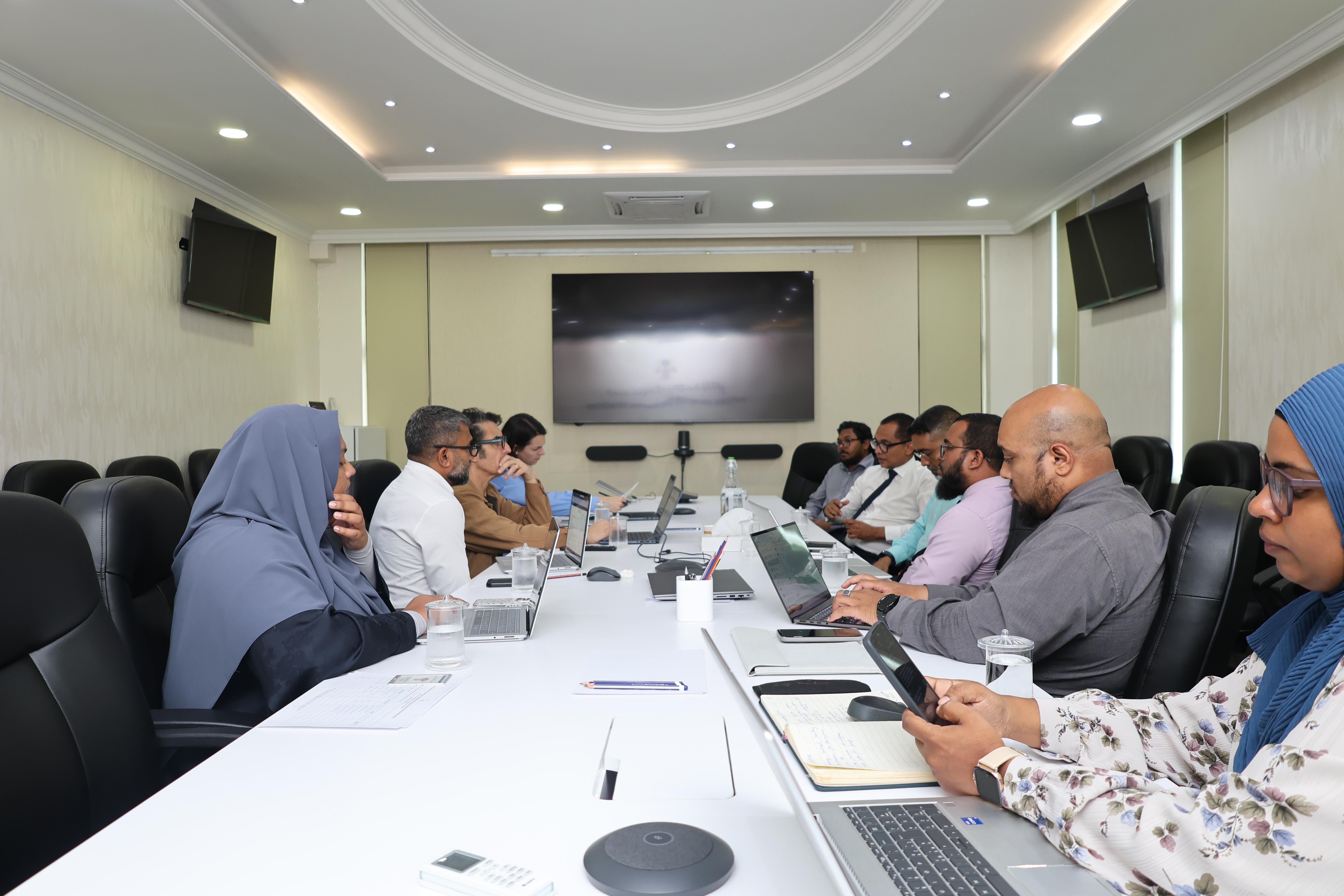News
The Maldives has Started Using Passive Acoustic Monitoring Technology in the Restoration efforts of the Rasfari Reef.
30 April 2025

The Maldives has successfully
completed a pilot program and officially implemented Passive Acoustic Monitoring
(PAM) technology to support reef restoration and marine conservation efforts. The pilot program was successfully completed as part of
the D’MADD project’s subcomponent 3.2, which explores leveraging digital
technologies and tools for climate adaptation.
The pilot program was conducted by Ocean World of Sound by Michelle’s
Earth Foundation. Ocean World of Sound is a program dedicated to studying and
preserving underwater soundscapes, specializing in PAM technology.
In the official event hosted to use PAM in the Maldives for the first time
for reef restoration and marine conservation, the Special Envoy for Climate
Change, Mr. Ali Shareef highlighted that he was involved in the initial
discussion and presentation on use of digital technologies for environmental
monitoring and conservation, expressed his delight that the PAM technology
pilot was successfully completed. However, he highlighted the many past
projects that were completed yet failed to proceed further after the project
completion. He advised to ensure that the knowledge attained from this pilot is
practiced and used consistently from this point forward.
Dr. Ibrahim Waheed, Project Manager for the D’MADD project,
emphasized sustaining the pilots' success after completion. He noted the effort
the D’MADD project made to build local capacity in the use of PAM technology by
providing the necessary tools, software, and training.
During the pilot program that
continued from 7th April to 30th May 2025, 22
participants were given the opportunity to join the training. 17 participants completed the
training program of 24 hours, which was conducted over 4 weeks with in-class
theory sessions and field practice. Ten officials from the Environment
Protection Agency, two Officials from the Maldives Marine Research Institute, three
Students from the Maldives National University and two marine biologists from
the civil society completed the training.
The participants had learned listening skills
to isolate different sounds from a recording and use the skill to record data
manually. Furthermore, the participants were trained to use specialised
software to analyse bioacoustics recorded in Rasfari Reef over the
implementation period. Additionally, the participants were taught how to
prepare for a deployment and retrieval mission with necessary planning,
paperwork and safety. The participants were also given field experience for a
deployment and retrieval mission.
PAM technology is a low-cost solution that
employs affordable recording devices that collect bioacoustics. The devices are
deployed and left over for a period of time before retrieval. The technology
allows a non-invasive solution for gathering data day or night and in all
weather conditions. The absence of human activity allows scientists to observe
the natural behaviour of marine species in the environment.
Rasfari
Reef is a marine protected area known for its biodiversity. In 2019, a cargo
ship ran aground on the western side of the reef, causing severe damage to the
reef structure. The government initiated a “Restore Rasfari” project to restore
the damaged area. The PAM tech pilot by the D’MADD project assisted the EPA in
monitoring the area for life by comparing data from the damaged areas to that
of a healthy sector of the reef. The pilot has proven that PAM technology can
be widely used across other restoration projects in the Maldives. Marine
biologists and enthusiasts can also use it to record data across the vast reef
systems in the Maldives, collecting non-existent baseline data. Data that could
help the countries battle the negative impact of climate change.


